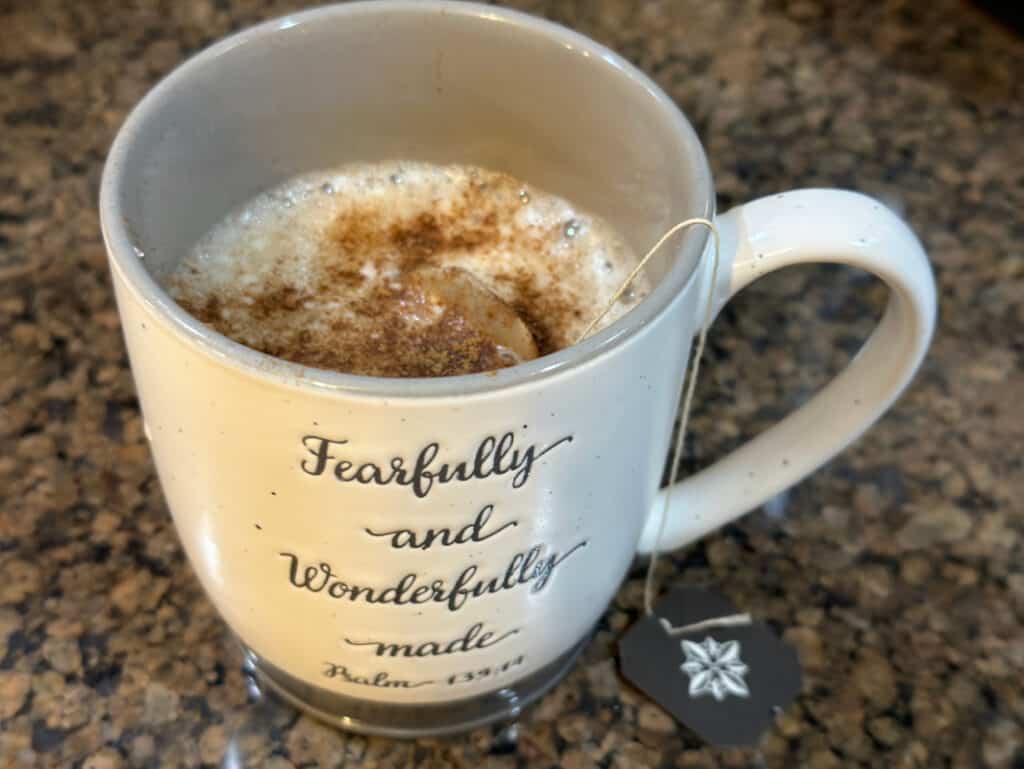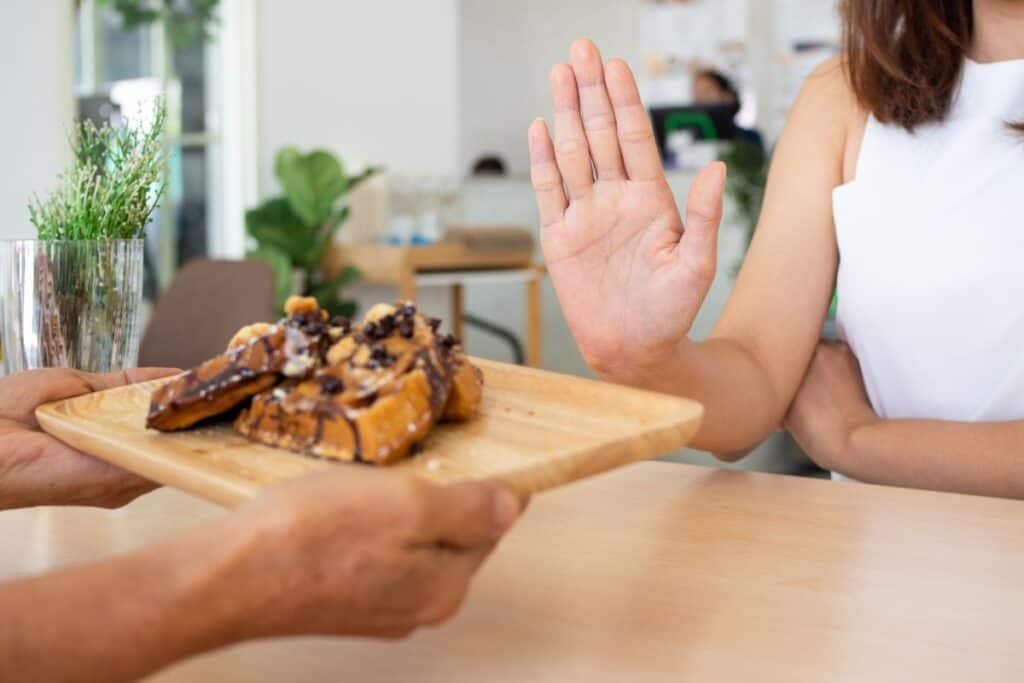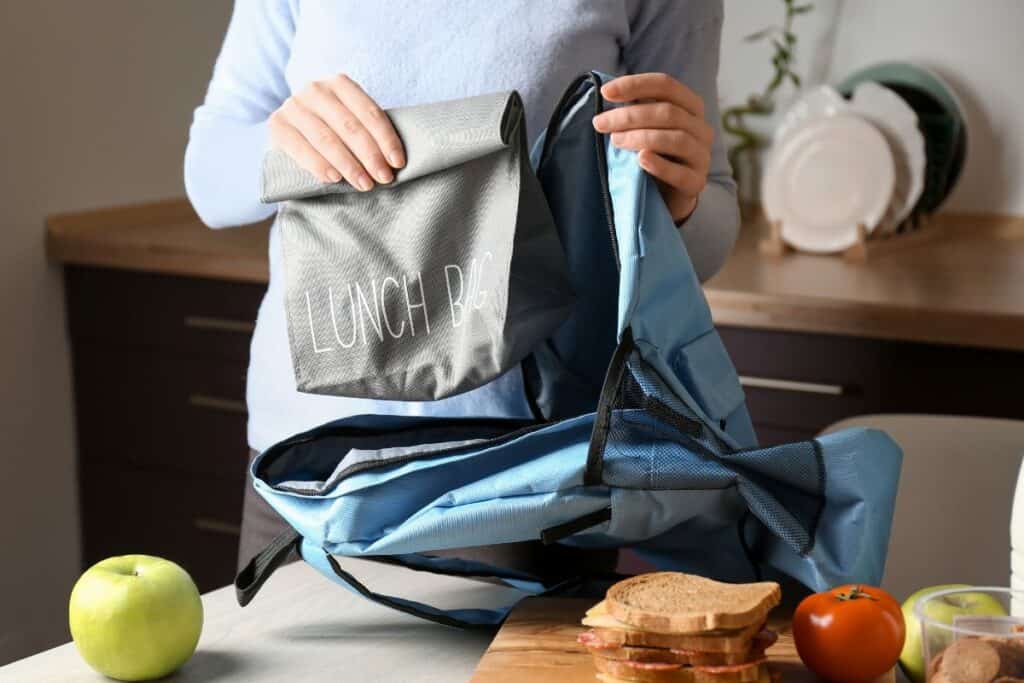I always said I could never be a morning person. But here’s how I (accidentally) made the switch from restless, to rested.
Maybe it was cramming so many late nights for college exams.
Or maybe having four kids that didn’t sleep somehow hardwired my brain to resist a decent nights’ sleep.
But for as long as I can remember, I’ve always fought against rising early.

I made all the excuses.
Truly, I was the grumpiest, don’t-talk-to-me, just-five-more-minutes kinda person before at least 7 AM.
But all of that changed (well, most of that changed) just recently.
So I’m documenting the results, in the event you need or want to become a morning person, too.
Why I wanted to become a morning person (and what is that, anyhow?)
When I say, “morning person”, I don’t mean someone who just refused to get up and have a normal adult schedule.
I worked full time for years, took my older kids to school and did all the things in the wee hours of the morning.
When I switched to working at home, I still had to do all the morning things with my kids.
But for some reason, it never felt natural. You would think after having to be places before 8:00AM for so many years, getting up early would become an easy habit.
But, nope.

On Saturdays when I didn’t set the alarm, it wasn’t like my body was programmed to wake up restfully at my normal time. I could sleep until 9:30 AM easily.
And lately, I had a hard time going to sleep and staying asleep. Sometimes I would wake up at 2:00 AM and be awake for an hour or two.
Like I mentioned- I was forever groggy.
I relied on coffee to get moving (more on that below). I thought morning grumpiness was unavoidable.
Really, the fatigue wasn’t just a morning thing, though.
After I finally was up and going, I would crash again about 3:00 in the afternoon and have zero energy to power through to dinner time.
(Hence, more grumpiness. Sigh.)
Sound familiar at all?
For me, the low energy was the norm, and I didn’t know why, much less how to fix it (or believe that I could).
5 Changes that made me a morning person
Interestingly enough, I wasn’t actively trying to become a morning person when it happened.
I was tackling the issue of low energy, sleep disturbance, and the anxiety and depression I had felt far too often over the last few years.
It’s true that many of us have had these symptoms magnified since 2020. The world is, in many ways, a different place than the world we grew up in.
So at first I chalked it up to a general restlessness.
I knew I needed to be more immersed in Scripture, and that I had really lacked practicing good spiritual disciplines lately.
Fatigue was impacting this discipline, but it wasn’t the only factor.
Reprioritizing my relationship with God was really where it needed to start.

Building back good habits (daily Bible study and prayer); listening to encouraging Christian podcasts, and having margin in my day to just sit and unwind, was the foundation.
From there, I became more aware of how I wasn’t taking care of myself- mentally or physically, in many key ways.
And here’s what I did to address those things- which, in turn, is how I became a morning person (the kind who isn’t * as awful * to be around, that is.)
#1. I quit coffee
I know – gasp – a mom who doesn’t drink coffee? How will she ever survive?
It wasn’t until I was about 25 that I even started drinking coffee, and I drank strong coffee at that time.
Over the years, I decided a mild cup of Joe was more my style.
But honestly? Coffee was mostly the vehicle for cream and sugar.
And it became such an ingrained habit, that I thought I needed it in order to “wake up”.

But do you need to quit coffee to become a morning person? Maybe not.
I am pretty convinced that I am extra-sensitive to caffeine. (My kids are, too, which is why we never bought soda except on holidays.)
When I stopped drinking coffee cold-turkey, I did have a headache for a few days. And get this: I previously only drank ONE eight-ounce cup per day.
For whatever reason, even that one cup per day was more than I needed.
My coffee substitute
No, I didn’t give up caffeine completely. But I found a safer substitute, for me.
A cup of black tea only has anywhere from 30-50 mg of caffeine versus about 96mg in a typical cup of coffee. (Some sources state up to 120 mg.)
Since I’ve always loved chai tea, I switched to chai with just a half teaspoon of sugar.
Side note: I love the organic cane sugar from Azure Standard.
Organic cane sugar has a lower glycemic index than regular white refined sugar, interestingly. Maple syrup is another healthier alternative to refined sugar.
When I want it to “feel” like a latte, I add a splash of milk, froth, and top with some cinnamon.
It’s delicious, and much healthier than the old coffee habit.

(I use this cheap handheld frother on Amazon. Be sure to use a large/deep mug to avoid a mess.)
As a bonus: tea is much cheaper than coffee- even good tea. I prefer the Stash brand.
#2: I cut back on sugar in general
After doing the Whole 30 plan a year ago, I learned a lot about my sugar addiction. It was hard to go those 30 days without sugar.
But it really changed how I viewed food.
Even being super aware of nutrition (thanks to lots of health-minded friends I happen to be surrounded by), I always knew that sugar was my weakness.
Whole 30 is pretty strict, and I wasn’t ready to go full-force with it again this year.
But I knew that limiting sweets would keep me from having the afternoon energy crash-and-burn.
Beyond my switch to chai tea (or herbal tea some days), I eliminated any sweetened drinks.
This included sweet tea, soda, and even flavored water that might include sugar substitutes.

Although my kids love baked goods, I stopped making them quite so frequently and try to limit myself to small portions when I do.
I also stocked up on nuts and dates (another Whole30 hack), as they have natural sweetness that can get me through the afternoon slump.
#3: I upped my water intake
Though water was always my go-to, I found I craved it even more when I was no longer making any coffee-shop runs, or visiting the Sonic drive-thru.
(Vanilla Dr. Pepper used to be my weakness).
Having a good quality cup that keeps my drink cold all day is the key.
I have to remember to take it wherever I go, so that I won’t be tempted to fall into old habits when we’re out and about.
#4: I quit fast food
This is probably obvious, but in order to avoid sugary drinks and cutting back on sugar – I almost never stop for fast food anymore.
This wasn’t too difficult, honestly. Knowing what’s in a Chick-fil-A sandwich (55 ingredients, in fact), is enough to realize it’s not worth it.
I’m learning to Meal Plan more strategically so that when my daughter has a cross-country meet, we’re not relying on the drive-thru for dinner.

I pack healthy snacks (like homemade trail mix or fruit), our water bottles, and we eat when we get home (or before).
Lunches can be monotonous when we’re all working at home and homeschooling our younger two kids.
So I make an attempt to have some frozen chicken nuggets and chicken strips on-hand from Butcherbox, which we all love and prefer over fast food, anyhow.
(Their nuggets have 15 ingredients, by contrast –all of which I can pronounce and are real, whole foods.)
Having healthy, yet easy alternatives to fast food makes a huge difference.
And we actually save money by stacking Butcherbox member deals in our cart and only ordering about twice per year.
(We’ve been ordering from this meat delivery service since 2018, so I can safely vouch for the consistent quality of the meat we’ve received. Read my full review here.)
#5: I started walking more often
The main goal is to get outside every day and do something.
I know that Vitamin D is so important to health- mental and physical, and that most of us are lacking enough of it.
Walking about a mile a day down our dirt road has been great for the obvious reasons (exercise), but getting more Vitamin D is another benefit.

As someone who works at the computer many hours a week, I knew I needed to balance out all that time sitting with more walking.
Being outdoors is just good for the soul.
I can know these things are true, but if I’m not intentional, I’ll curl up in my fuzzy blanket on the couch instead- and regret it later.
Surprising (and not so surprising) results of these changes
While I wasn’t even trying to lose weight, I did lose 5 pounds over the first 6 weeks of making these changes.
It was nice to fit back into some of the jeans in my “someday” pile on the closet shelf! (We all have one, right?)
And it’s common sense that we’re supposed to lead by example, but I was honestly surprised at how much my kids caught on to my healthier habits.
If I forget to take a walk, they are quick to remind me. They look forward to our walks, too.
It only took a week of refusing any fast-food drink stops before they stopped asking (ok, begging) for those things.
One of my kids who has also really struggled with sugar addiction is making much healthier choices. As I suspected, the big emotional swings seem to be largely resolving, too.
And of course, the major change that I wasn’t even planning for:
Only days after quitting coffee, I was sleeping soundly, and waking up early- without an alarm.
At this point, I really don’t need to set an alarm at all, because I wake up consistently at least 30 minutes before I need to (sometimes an hour).
I feel well-rested and much less anxious, on basically less sleep than before.
In fact, mentally, I feel more focused and clearer-headed than I have in a very long time.

Since I’m awake plenty early, I help make our older girls’ lunches, which allows me to pack healthier foods than they might have chosen in the past.
Habits: Hard to Break, but so worth it
Sure, I still struggle with sugar cravings. But experience has taught me that the benefit of overindulging is greater than the temporary “fix” it brings.
I honestly don’t miss coffee at all, in case you’re wondering.
These are all habits I knew needed to address for a long time.
And if I had known how quickly I could feel better, I would have tackled them a lot sooner!
So if you want to become an accidental morning person, maybe you’ll find a few habits you can let go of, or at least modify over time.
You’re worth it. Your kids are worth it. Your mind, body and soul are worth it.
You can do it.
You might also like:
Guide to Living More Naturally